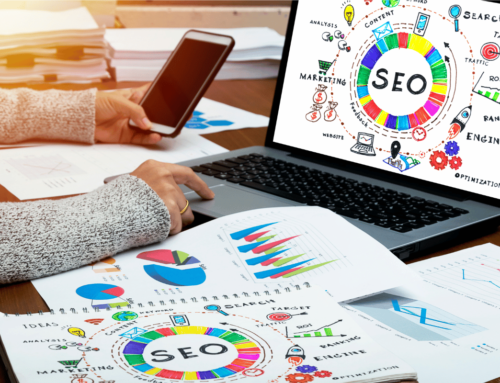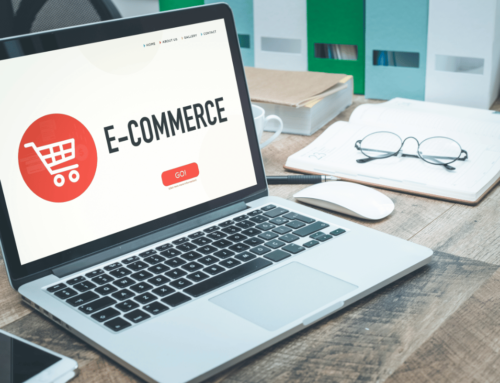“SEO Vs. PPC: Do They Really Work Together?”
October 19, 2021
Marketing your business online can take on any form. You can opt for organic traffic through the use of SEO which makes your website rank higher. Alternatively, you can go for a pay-per-click approach where your paid ads appear at the top of search listings.
Both approaches can be used to benefit your online business, and they each have their benefits. In this guide, we take a look at their differences, benefits, and downfalls. We also explore whether you can use the two together to achieve greater success for your online business.
SEO
SEO gives you free, organic traffic which originates from search engine results. Whenever someone on the internet searches for a product or service that you offer on your website, you will appear on the results page. When they click on the search result, SEO will lead them to your website. SEO has several benefits such as:-
– Awareness: Your website is placed in front of an audience in very much the same way an ad would. As such, awareness about your brand gets to grow when you appear in more searches.
– Branding: Trust grows based on the online visibility you can achieve with search engine optimization. Your brand becomes familiar to internet users, which makes your business more likely to get new customers.
– Credibility: Many users are known to skip ads or install ad blockers on their browsers. For this reason, organic search results will be more reliable and will get you more traffic. The organic traffic is also made up of genuinely interested internet users who are more likely to become paying customers.
– Traffic: A growing number of internet users visiting your website presents your business with an opportunity to gain new customers and make more sales.
– Cost: SEO is free because you are not charged for every click that is made from search results. This makes it more cost-effective as compared to other means of doing marketing for your online business.
– Sustainability: Results from search engine optimization do not stop coming the moment you stop. As such, it is a sustainable approach that will keep your business running profitably even after you have completed optimizing your website.
However, things are not always easy when you are using search engine optimization. In some cases, the keywords you are trying to optimize for might already be dominated by huge brands, which means you will be seriously outgunned.
Additionally, SEO can be slow in bringing in traffic at times, and you have to wait some time for definite results. Achieving strong visibility organically also requires that you have a good content optimization plan.
Most of the work cannot be done in-house, and as such, getting reliable help will be necessary. As such, it presents a challenge for small businesses that do not have enough resources to work on content optimization, link building, and keyword research at the same time.
PPC
When you are looking for accurately targeted traffic, PPC is the way to go. Paid search gets you better results than organic traffic, and it performs better than SEO when it comes to immediate results. When you look to make visible differences in your online marketing, a bit of PPC will not hurt. Following are some benefits that you can enjoy when using PPC.
– Better positioning: Even when users choose to scroll down, they will still see the paid ads on the search results page. This means that your ads have the best position on the search results page.
– Improved Ads: PPC ads are not mere ads; they are super ads. You can optimize them in several ways, including a call button into the same search result or even a location. Such contextual information will help your paid ad get more engagement and subsequently bring more traffic to your website. For instance, a book now button on a hotel website listing on the search results page can improve bookings by a huge factor.
– Visual product ads: If your business sells products, you can have a visual product ad that allows for more features than ordinary ads. These ads encourage engagement and can help your business.
– Speed: Getting to the market can be done in as little as three days compared to months of preparing and planning required for search engine optimization.
Competition from other bidders is the main drawback of PPC, and getting into a war with other advertisers is very easy. It would help if you also were cautious about other brands copying your approach and the design of your ads when they see you making progress.
Can SEO and PPC Work Together?
SEO will work perfectly for your website if you are looking for small-scale results such as a few visitors each week. However, this will not be feasible if you are up against huge brands such as eBay and Walmart.
In such a case, using SEO and PPC together will be the ideal approach. Benefits of using this approach include:
– Data from the PPC campaigns can be added to your organic searches.
– You can easily grow the total traffic volume to your website using PPC and SEO to rank better for certain keywords.
– You can use remarketing to always stay on the search results page and closer to your customers.
– You can move keywords used in one campaign over to organic search to attract more traffic to your website.
– PPC can be used to test for the effectiveness of certain keywords before you can incorporate them into a long-term organic strategy.
– You can use commercial keywords to test your customers’ engagement through all stages of the purchase journey.
– Your business can have greater online visibility through a combination of organic and paid approaches.
When you need an aggressive approach to marketing your business, a mix of SEO and PPC is optimal. It is easy to change parameters to ensure that you are getting the best results from your marketing. When you are up against huge brands and powerful online businesses, it will serve you better to have both approaches for better results.









